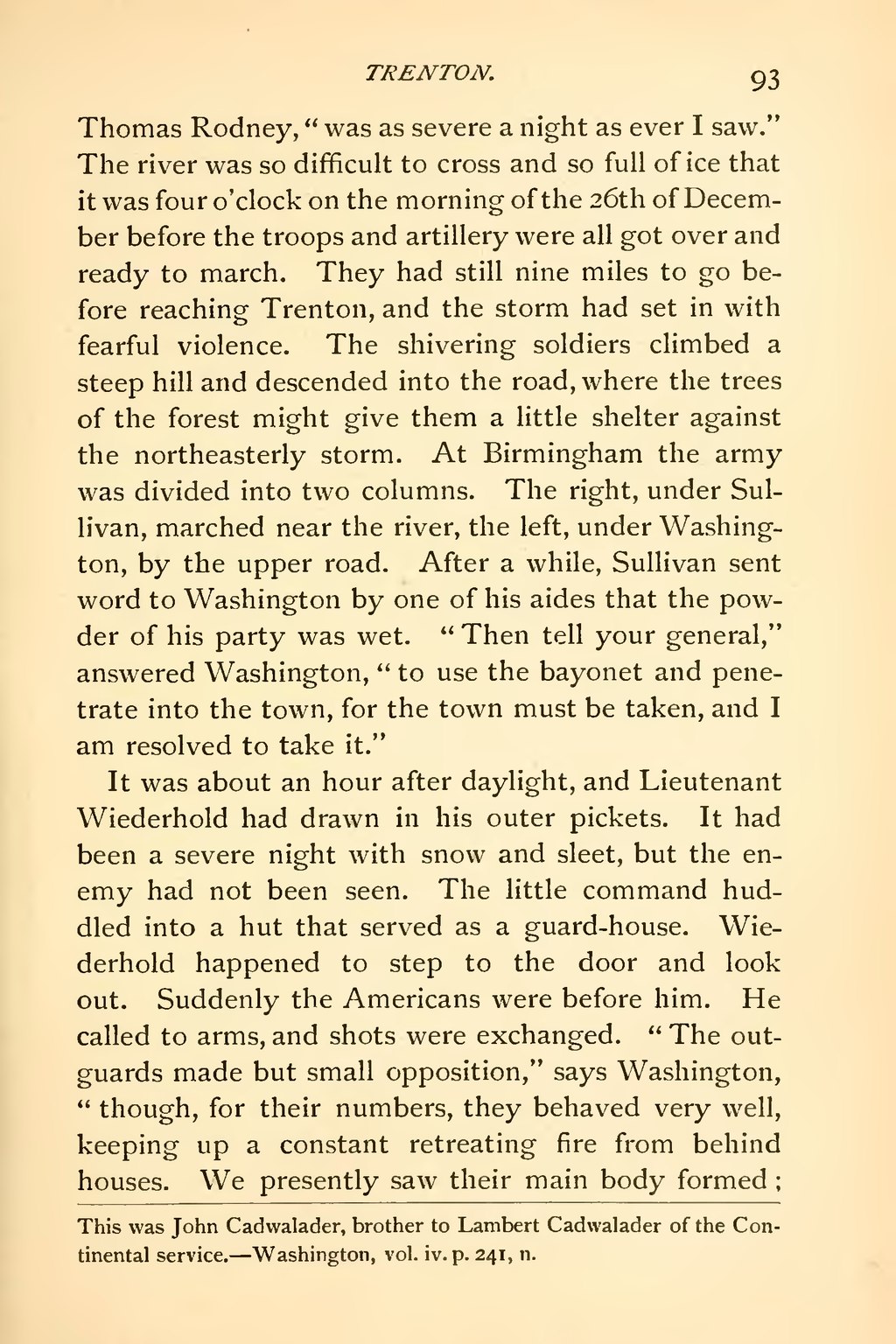Thomas Rodney, “was as severe a night as ever I saw.”
The river was so difficult to cross and so full of ice that
it was four o'clock on the morning of the 26th of December
before the troops and artillery were all got over and
ready to march. They had still nine miles to go
before reaching Trenton, and the storm had set in with
fearful violence. The shivering soldiers climbed a
steep hill and descended into the road, where the trees
of the forest might give them a little shelter against
the northeasterly storm. At Birmingham the army
was divided into two columns. The right, under
Sullivan, marched near the river, the left, under Washington,
by the upper road. After a while, Sullivan sent
word to Washington by one of his aides that the powder
of his party was wet. “Then tell your general,”
answered Washington, “to use the bayonet and
penetrate into the town, for the town must be taken, and I
am resolved to take it.”
It was about an hour after daylight, and Lieutenant Wiederhold had drawn in his outer pickets. It had been a severe night with snow and sleet, but the enemy had not been seen. The little command huddled into a hut that served as a guard-house. Wiederhold happened to step to the door and look out. Suddenly the Americans were before him. He called to arms, and shots were exchanged. “The out-guards made but small opposition,” says Washington, “though, for their numbers, they behaved very well, keeping up a constant retreating fire from behind houses. We presently saw their main body formed;
